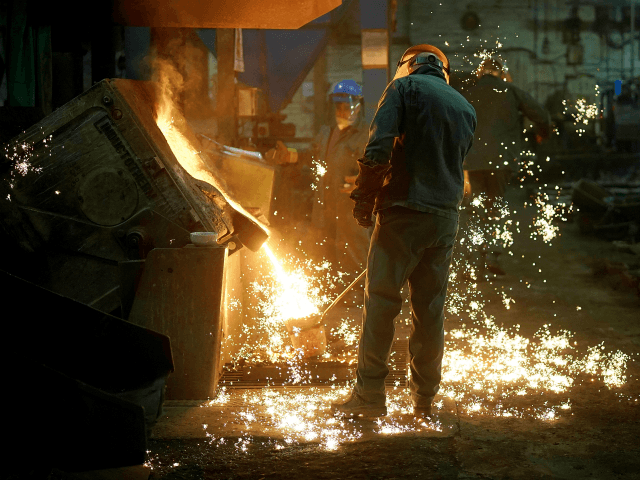Britain’s post-referendum economy is continuing to perform strongly, with manufacturing set to outperform the rest of the economy.
Despite threats of a recession and mass job losses following a Leave vote, and despite Britain’s economic future currently at its least certain — with Brexit carrying the day in 2016 but the future UK-EU relationship still to be determined — the country is continuing to defy establishment expectations.
EEF, the industry body representing manufacturers and engineering- and technology-based enterprises, and BDO, the accountancy firm, believe factory output will rise by 2 per cent this year, The Guardian reports.
A survey of some 378 businesses by EFF found over 30 per cent reporting an increase in orders in the first three months of 2018 — good news, considering the limits on energy consumption imposed during the Storm Emma natural gas shortage are likely to have resulted in a hit to output unrelated to Brexit.
“The importance of a buoyant global economy to export-focused manufacturing sectors is again reinforced, with growing overseas demand,” commented Lee Hopley, the EEF’s chief economist.
The positive figures emerge just days after Siemens, the German firm which former Deputy Prime Minister and Liberal Democrat leader Nick Clegg frequently warned would abandon Britain in the event of a Leave vote, announced it would invest £200 million a new train factory in Yorkshire, creating thousands of jobs.
This was followed on March 5th by food giant Unilever inaugurating a new advanced manufacturing centre in Port Sunlight in Merseyside, and after Japanese carmaker Toyota announced it will build the new model of its Auris car at its freshly upgraded plant in Burnaston, Derbyshire.
And on March 4th, the Confederation of British Industry (CBI) said that British businesses were growing at their fastest rate in a three-month period in more than two years. The CBI’s monthly growth indicator more than doubled in February from the previous month, reaching its highest since December 2015.
While unable to deny Britain’s continued growth and falling unemployment, some EU loyalists have tried to point to the fact that growth appears to be slower than in other G7 countries as evidence that their Brexit threats were not entirely baseless.
However, economists such as Princeton University academic Ashoka Mody — former Deputy Director of the International Monetary Fund (IMF) in Europe — have explained that this interpretation is misleading and that the slowdown represents a positive deflation of a dangerous finance-property bubble, with the economy rebalancing towards productive activities such as manufacturing following the referendum.

COMMENTS
Please let us know if you're having issues with commenting.